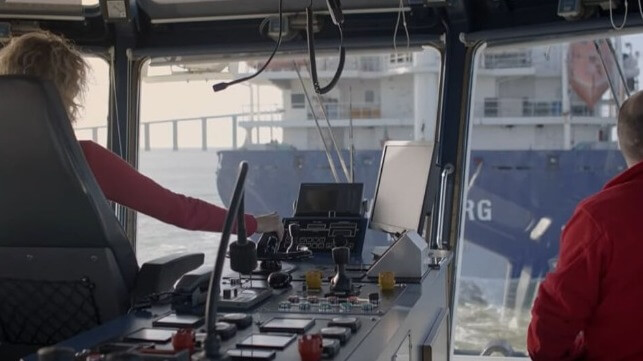Assessing Diversity: A Data-Driven Approach for Change in Maritime

For the maritime industry, promoting diversity, equity, inclusion, and belonging (DEIB) has become a strategic imperative. Heidi Heseltine, Founder of the Diversity Study Group, emphasizes the need for collaboration, strategic focus, and data-driven decision-making to foster meaningful change. In this article, she highlights the importance of assessing diversity and inclusion to build bridges towards a better maritime industry.
 The Benefits of DEIB
The Benefits of DEIB
While shipping organizations may compete for talent, we must recognize that collaboration on diversity initiatives benefits the entire industry. By sharing experiences, best practices, and lessons learned, we can create a wider and deeper talent pool. Collaboration enhances the industry's reputation and paves the way for a diverse and skilled workforce. Let us inspire one another, learning from successes and failures, to accelerate progress in DEIB.
A diverse, equitable, and inclusive workplace fuels progress, innovation, and change. In an industry grappling with a shrinking talent pool, rather than solely relying on recruitment to solve the talent shortages, we should focus on developing a wider pool of talent within our industry. By aligning DEIB with the wider business strategy, we can unlock the full potential of diverse talents and achieve optimal outcomes across all facets of operations.
Data-Driven Assessment and Accountability
Data collection and analysis plays a crucial role in assessing DEIB progress and ensuring accountability by providing accurate insights into the state of diversity within our teams, companies, and industry. Reliable and objective datasets can help us to understand the challenges we face thus shaping evidence-based strategies and guide decision-making.
However, it is essential to approach data interpretation cautiously, avoiding biases and misinterpretations that may hinder progress. As we analyze data, we must ensure our strategies are inclusive and address challenges faced by all individuals, regardless of gender, ethnicity, or other characteristics. Fact-based decision-making is fundamental to successful DEIB strategies.
The Diversity Study Group (DSG) places immense importance on data—rigorously collected, analyzed, and drawn from diverse sources. Good data helps us communicate our progress and showcase how we are changing. The maritime industry has long struggled with an image problem and talent shortage. In an era where transparency is increasingly valued by employees and stakeholders, data-driven evidence serves as a building block for accountability and trust, as well as becoming a powerful tool for attracting and retaining top talent. It also strengthens the case for career development and progression opportunities. This is especially crucial in a time of global talent scarcity, where we need to showcase our commitment to diversity and inclusion to both existing and potential employees.
To achieve true diversity, it is essential to foster inclusion at all levels of the organization, not just in a few positions. Data from the DSG’s Annual Review 2022 revealed that diversity is lacking at senior levels, and the talent pipeline needs to be examined across all departments. With a granular understanding of the talent pool, we can adjust strategies and implement inclusive practices throughout the company.
Implementation
To achieve meaningful progress in DEIB, organizations must treat it as a strategic priority. This entails employing the same rigor and commitment as any other commercial imperative; senior buy-in is vital. Setting measurable objectives, implementing reporting standards, allocating appropriate resources, and linking performance to DEIB goals are essential for sustained advancement.
To unlock the potential of data, organizations must first define their goals and purpose. As an industry, the maritime sector faces the challenge of attracting and retaining talent, addressing the gender and generation gap, as well as adapting to evolving technologies and sustainability goals. By collecting data about our industry, we can demonstrate positive change, encourage potential employees, and align our strategies with the needs and expectations of the existing and future workforce.
Senior buy-in and leadership support is instrumental in creating a truly inclusive workplace. Senior executives must champion DEIB, demonstrate long-term support, learn from both failures and successes, and evolve from bystanders to allies. They need to embrace continuous learning, acknowledging that progress may involve setbacks. Effective leadership at all levels fosters a culture of inclusivity and sets the tone for transformative change. Coaching and mentoring senior leaders can enhance their effectiveness as champions for DEIB.
Open and effective communication is key to raising awareness and inspiring action. By sharing progress, challenges, and best practices, we can learn from one another and ignite a collective commitment to DEI. A comprehensive communications plan, both internally and externally, enables organizations to make a compelling case for change and engage stakeholders in the journey.
Long-term and sustainable change requires cultural transformation. Organizations must identify the factors that drive change within their specific context, tailoring strategies to make DEIB relevant to each department, business line, and office. Zero tolerance for unacceptable behavior and fostering a culture of accountability are crucial elements in creating safe and inclusive environments.
The Role of the Diversity Study Group (DSG)
The DSG plays a pivotal role in supporting the shipping and maritime industry in its journey toward greater diversity and inclusion. Through benchmarking, resource sharing, consulting, and networking, the DSG facilitates open dialogue and the exchange of best practices. With support tailored to meet the specific needs of organizations, offering services ranging from DEIB strategy development to advisory support, the DSG’s commitment to data collection and analysis empowers its members to implement meaningful change and communicate their progress effectively. By partnering with industry leaders and initiatives like the All Aboard Alliance and the Global Maritime Forum, we strive to facilitate change at all levels.
Looking to the Future
While organizations like the International Maritime Organization (IMO) focus on regulation and policy, we must engage in broader outreach efforts. By communicating the breadth of roles within the shipping sector, promoting diversity, and targeting a wider audience through social media and community outreach, we can attract diverse talent and reshape the industry's image. Together, we can create an industry that values and celebrates the contributions of every individual, fostering innovation.
Heidi Heseltine is Founder of the Diversity Study Group and CEO of maritime HR firm Halcyon Recruiting. For more information, visit https://diversitystudygroup.com.
The opinions expressed herein are the author's and not necessarily those of The Maritime Executive.
